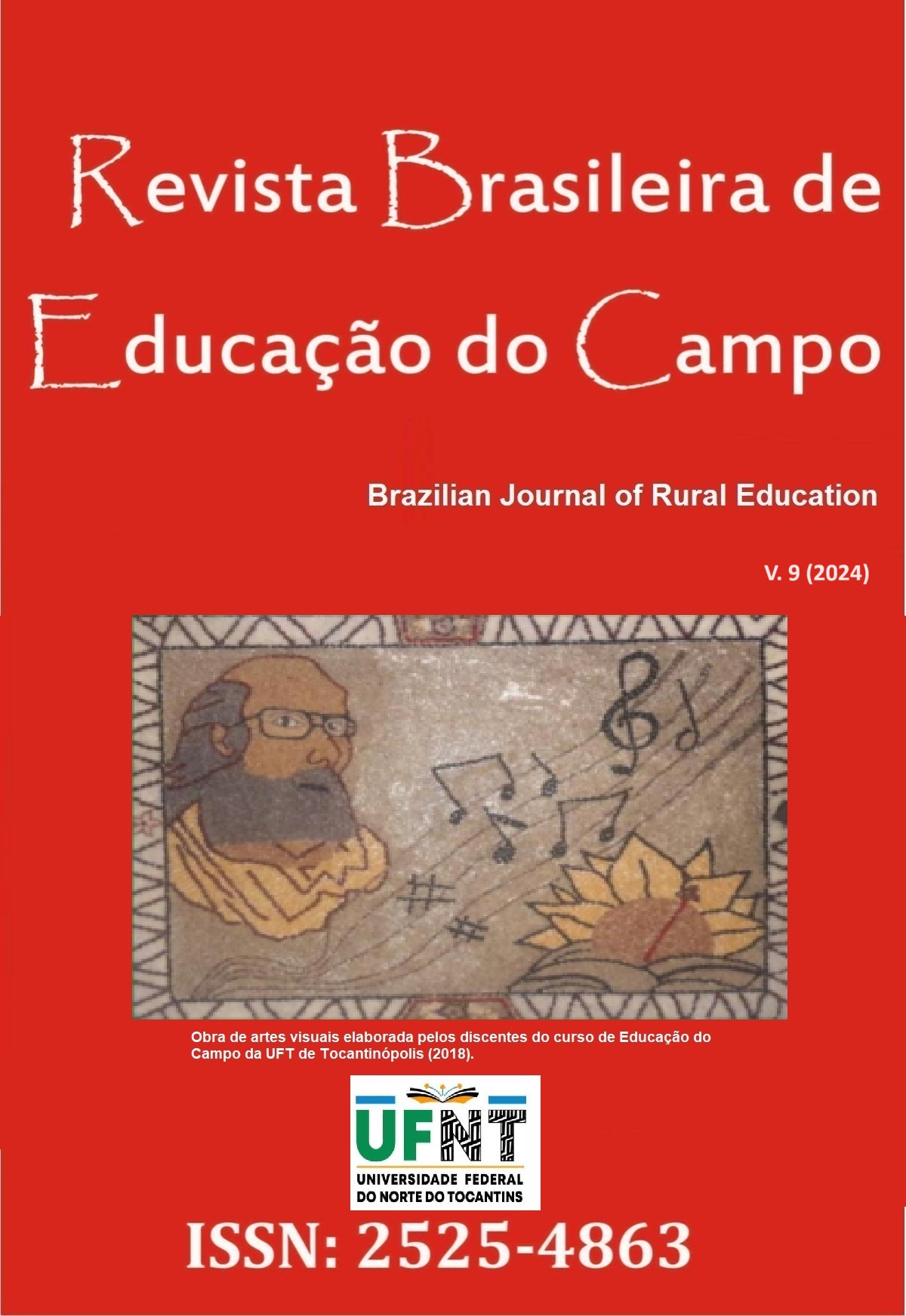Women, race, work, and Rural Education during the Covid-19 pandemic
DOI:
https://doi.org/10.70860/ufnt.rbec.e18525Abstract
ABSTRACT. This article is the result of an interinstitutional research entitled “Education and Rural Schools in times of the COVID-19 pandemic” that began during 2020. We performed the research through a quantitative approach, with the application of questionnaires with students and former students from the courses of Rural Education, Pedagogy of Land and Indigenous Pedagogy. After this first moment, we developed online qualitative interviews. We seek to present an analytical outline based on the data collected, especially at the intersections between class, women, race, work and rural education. Although it was not the centrality of the investigation, it pointed out a series of data that came from the concrete lives of these women and required a more systematic analysis. To present this debate, the article emphasized three major themes, namely: Women, Class, Race and Ethnicity through the profile of the women who participated in the research; Work, Gender and Race in Rural Education during the pandemic; and the impacts of the pandemic on women in Rural Education. Among the main results, there is a greater presence of women and black people engaged in Rural Education, most of whom are mothers. Among the main impacts that these women suffered in their lives, the increase in work, decreased income and dedication to their studies and their children during the pandemic stand out, which was precarious for most of them.
Downloads
Literaturhinweise
Garcia, A. K. O. (2022). Interseccionalidade ou consubstancialidade: faz diferença para pensar a diferença? Revista Novos Rumos Sociológicos, 10(18), 103-129. DOI: https://doi.org/10.15210/norus.v10i18.4845
Gonzalez, L. (1984). Racismo e sexismo na cultura brasileira. Revista Ciências Sociais Hoje, 223-244.
Hirata, H., & Kergoat, D. (2007). Novas Configurações da Divisão Sexual do Trabalho. Cadernos de Pesquisa, 37(132), 595-609. DOI: https://doi.org/10.1590/S0100-15742007000300005
Medeiros, J. W. M. (2019). “A Flor de Jacinto”: e quando o/a Professor/a é gênero não binário? Gênero, 19(2), 93-111. DOI: https://doi.org/10.22409/rg.v19i2.1252
Ribeiro, A. F. M., & Vieira, A. M. D. P (2023). O ingresso de mulheres nas universidades no Brasil (1940-1980). Revista IberoAmericana de Estudos em Educação, 18(00), e023100. DOI: https://doi.org/10.21723/riaee.v18i00.18047
Downloads
Veröffentlicht
Zitationsvorschlag
Ausgabe
Rubrik
Lizenz
Copyright (c) 2024 Andrea Francine Batista, Carolina Orquiza Cherfem, Maria Eloa Gehlen

Dieses Werk steht unter der Lizenz Creative Commons Namensnennung 4.0 International.
Creative Commons Attribution License
Creative Commons Attribution License
Proposal for Copyright Notice Creative Commons
1. Policy Proposal to Open Access Journals
Authors who publish with this journal agree to the following terms:
A. Authors retain copyright and grant the journal right of first publication with the work simultaneously licensed under the Creative Commons Attribution License that allows sharing the work with recognition of its initial publication in this journal.
B. Authors are able to take on additional contracts separately, non-exclusive distribution of the version of the paper published in this journal (ex .: publish in institutional repository or as a book), with an acknowledgment of its initial publication in this journal.
C. Authors are permitted and encouraged to post their work online (eg .: in institutional repositories or on their website) at any point before or during the editorial process, as it can lead to productive exchanges, as well as increase the impact and the citation of published work (See the Effect of Open Access).














